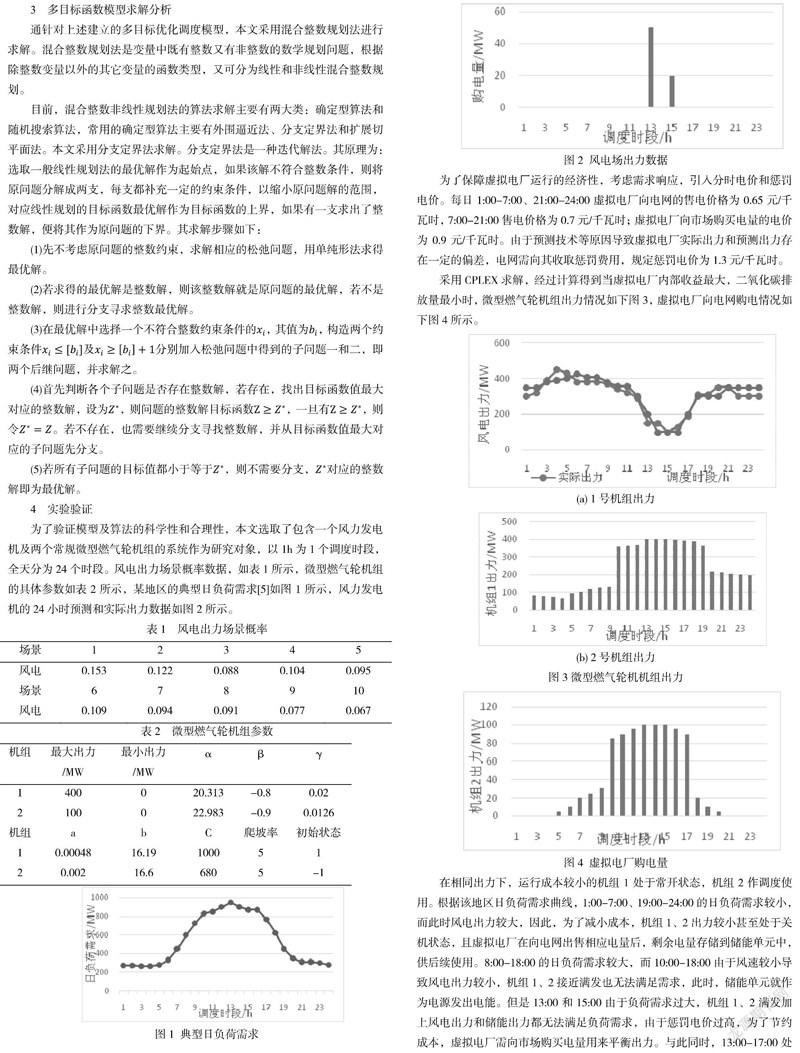多电源虚拟电厂优化运行研究
管超



摘 要:分布式能源因容量小、出力隨机等特征使其并网后难以调度,为此虚拟电厂应运而生。本文主要从调度层面对虚拟电厂的运行控制进行优化。基于激励需求响应引入含自弹性和交叉弹性的负荷经济模型,建立了以虚拟电厂内部利润最大和二氧化碳排放量最小为目标的优化模型,并提出功率平衡、机组出力上下限等约束条件。选取了合适的算例,寻找优化模型的全局最优解,验证了本文所建立的优化调度模型具有一定的科学性和合理性。
关键词:虚拟发电厂;分布式电源;优化运行
ABSTRACT: The capacity of distributed generation is too small and its output is random, which makes it difficult to dispatch after grid connection. Therefore, virtual power plant comes into being. This paper optimizes the operation control of the virtual power plant from the scheduling level. Based on the incentive demand response, a load economy model with self-elasticity and cross-elasticity is introduced. It is proposed to establish the objective function with the maximum profit and minimum carbon dioxide emission. Constraints such as power balance, upper and lower limits of unit output are also proposed. Then the paper selects the appropriate examples, finding global optimal solution. The results show that the model has certain scientific and reasonable.
KEY WORDS:virtual power plant; distributed power; optimized operation

